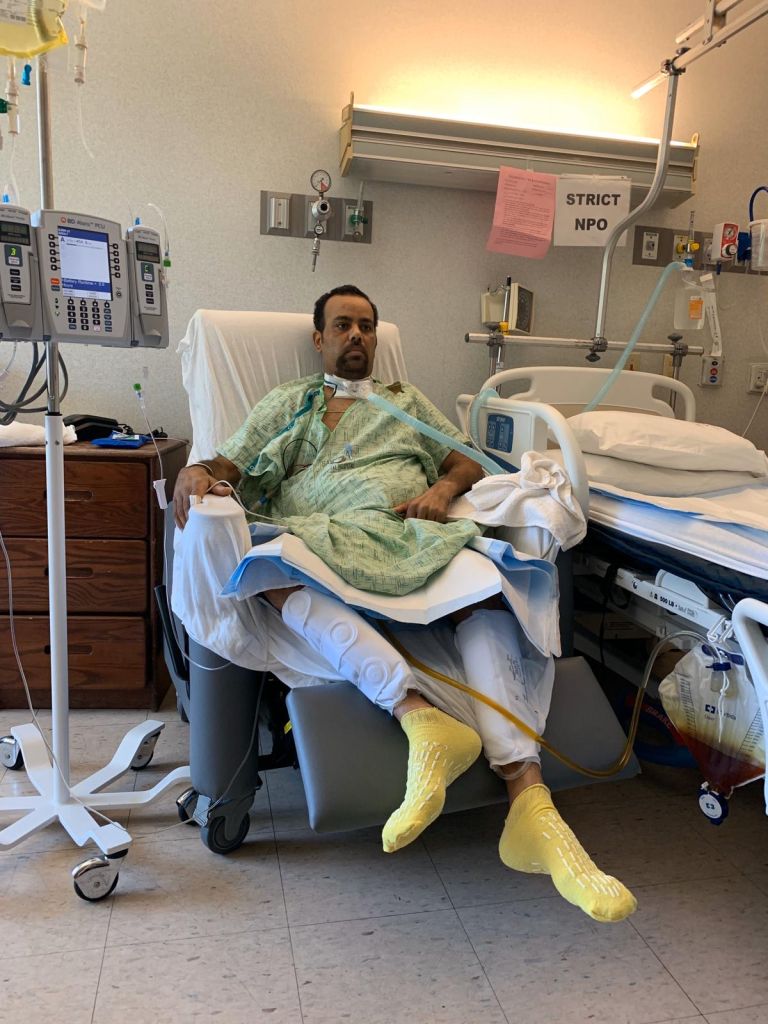Alfonso Ceja Castañeda has been waiting for a small bowel transplant for months that they have not been able to do because Medi-Cal, the state insurance for low-income people in California, cannot be covered.
“Please, I ask the people of Medi-Cal to put themselves in my shoes, and support us for the transplant. It has been a long time that I had to wait. I feel very weak, but I am trying to fight and be patient, ”says Alfonso, who has been hospitalized since April 14, 2019 when he was the victim of two bullets without owing or fearing her.
Alfonso is 34 years old. He is married and is the father of two children aged 10 and 5. Since 1997 he emigrated from Michoacán, Mexico. 14 years ago he became a citizen of the United States. He made a living as a trailer driver. He lives with his wife Arlene Valencia Andrade and their two children in Stockton, northern California. All three are born in the USA.
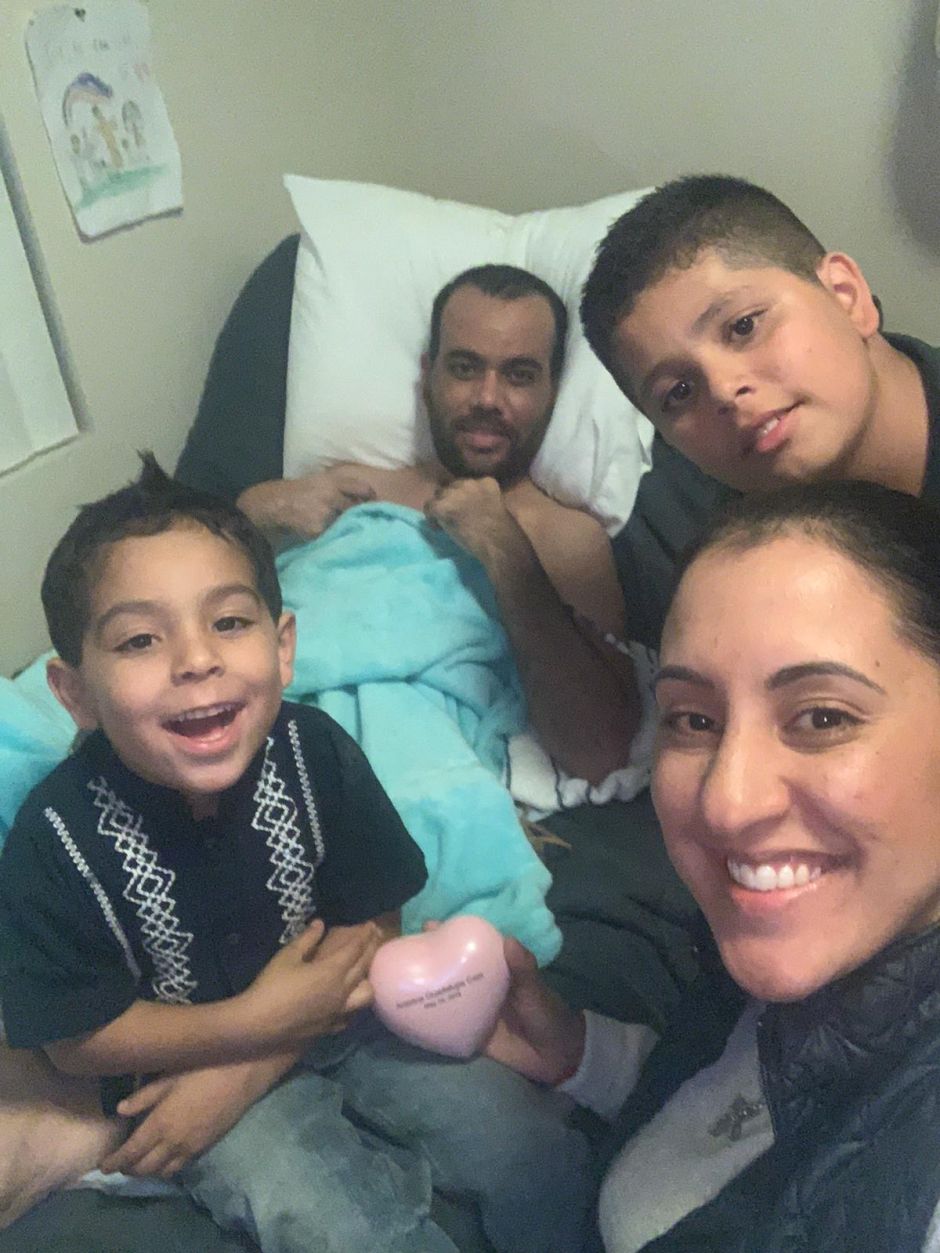
On the night of April 14, Alfonso's life changed forever. He was at an aunt's house, when a brother-in-law asked him to accompany him to a bar to pick up a friend, who had no one to give him a ride to his house.
“Upon arriving at the bar, my brother-in-law told me that I had to go to the bathroom. I waited. Then he started a lawsuit between two men who were there. One of them pulled out a gun and started shooting. I got two bullets in the abdomen that broke my small intestine and lost part of the pancreas, ”he says.
Alfonso spent two and a half months in a coma. "The doctors told my wife that I had a one percent chance of living, but here I am still fighting for my life," he says.
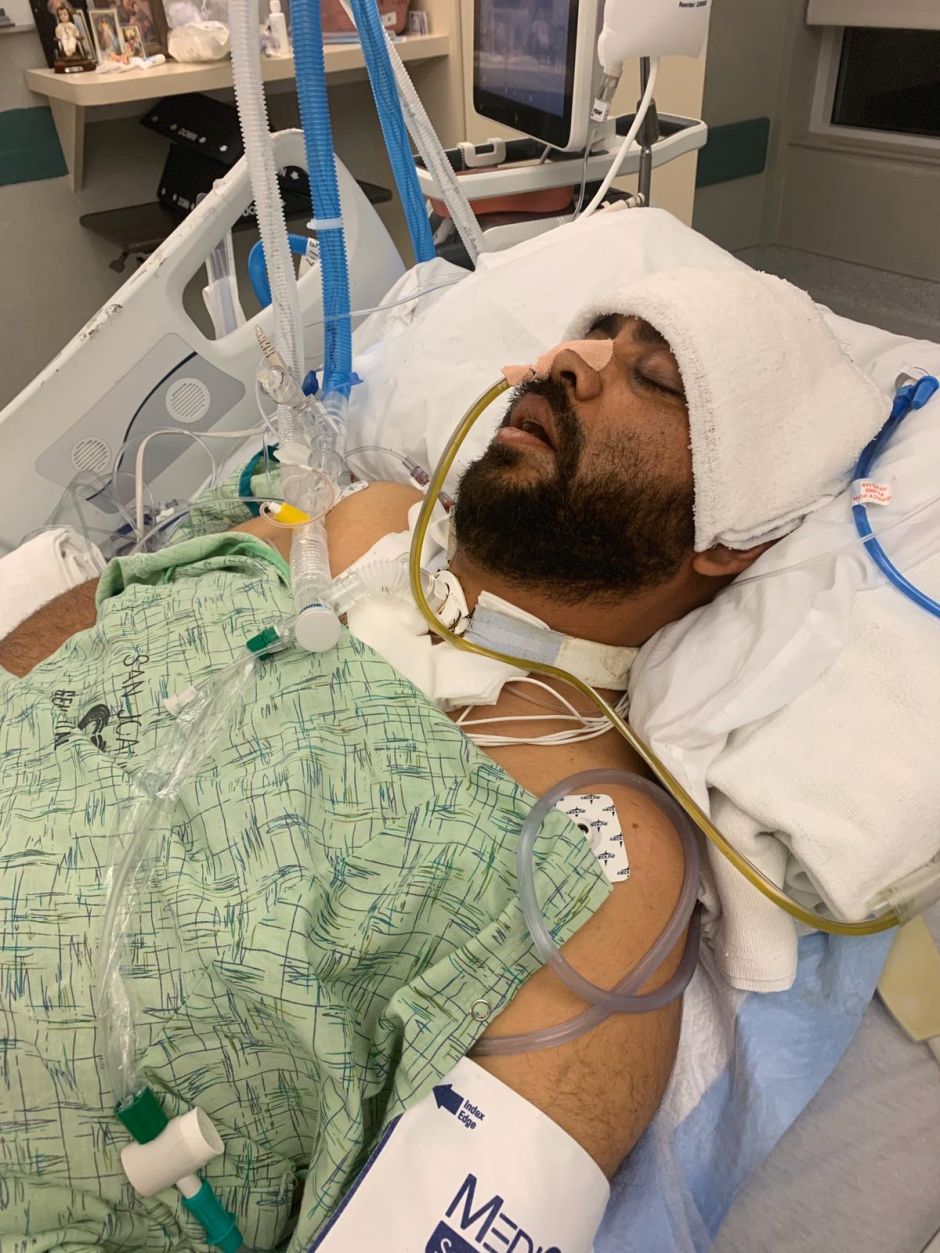
He was treated at the San Joaquin General Hospital where he was told that his only chance of survival was in a small bowel transplant.
“We have fought a lot. A request for treatment to do the transplant at the UCLA hospital (University of California, Los Angeles) was rejected by the Medi-Cal office, and we are desperate, ”says Arlene.
Currently, Alfonso is in the Central Valley Specialty Hospital of Modesto.
They have made five holes in the abdomen to keep it draining. It is prevented from evacuating, and is fed through a tube.
“I have lost 60 pounds. Everything seems to me, but I can't eat anything, not even water, ”he says.
Sometimes he is discharged from the hospital and sent home, but due to the delicate state of his health, he soon returns.
"What happens is that your immune system is very low and easily catches any infection," explains Arlene.
The biggest problem is that Medi-Cal doesn't cover anything, he says. "They don't even want to help me with transportation."
Arlene says that the doctor has already told them that Alfonso's body is ready for the transplant, but without the support of the Medi-Cal they can do nothing. “The doctor has told us that he will try at Stanford Hospital. In California there are only two hospitals that do bowel transplants, UCLA and Stanford. It is also done in Washington, but it would be more complicated because we don't have money to travel there. ”
And she adds that because her children are very young and she must be in the care of her husband, she cannot work.
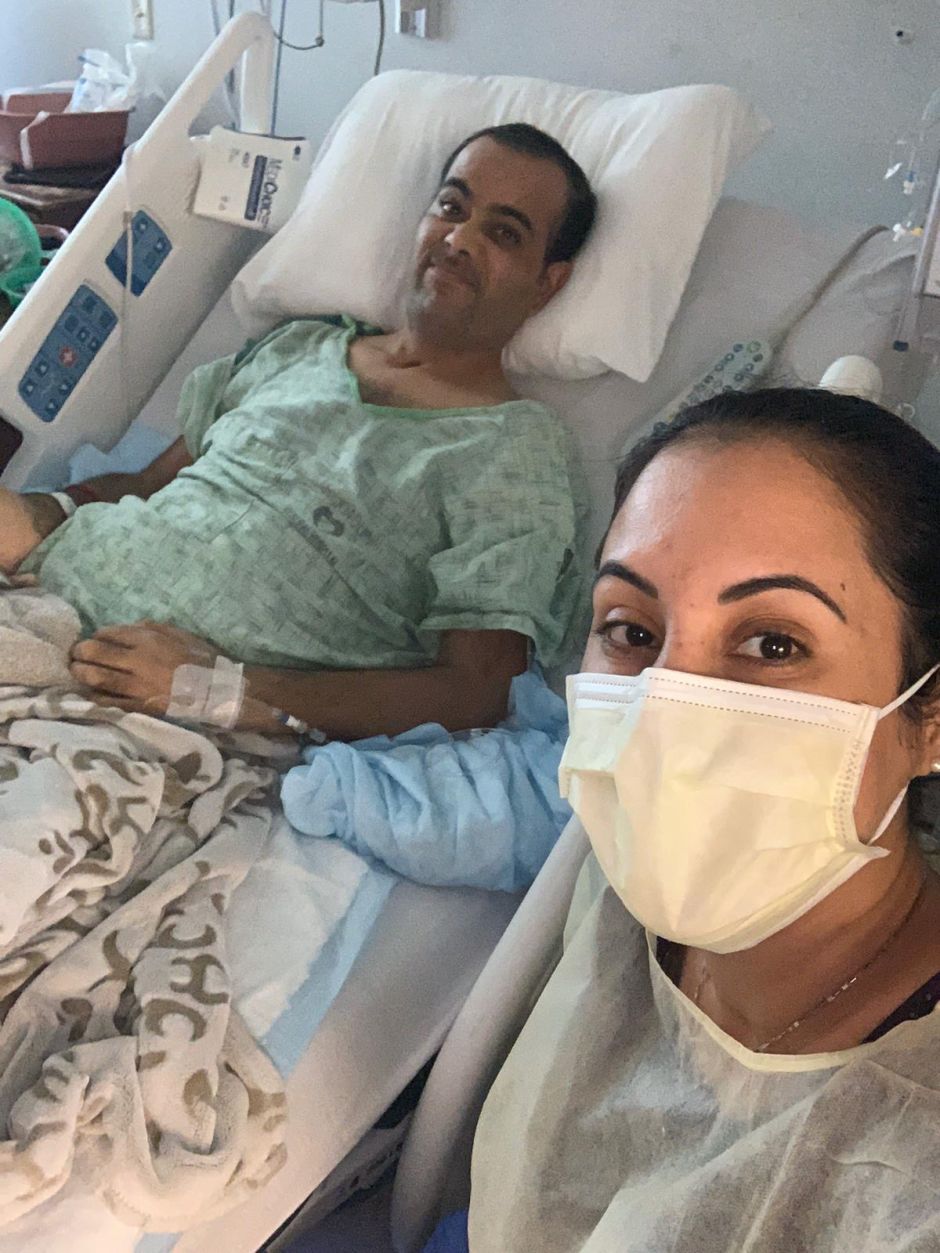
"We feel very frustrated. We are desperate, looking for a door for my husband to receive the transplant. Sometimes he gets depressed. I ask Medi-Cal to please support us because we need it. They are our only hope, ”he cries.
In the middle of his delicate state of health, Alfonso is armed with courage and tries to put his best face. "I have a lot of strength, and that has helped me a lot," he says.
The opinion He contacted the spokesmen of Medi-Cal, but said they cannot issue any comments until they have approval with the signature of Alfonso and his wife. They will send the signed authorization so that Medi-Cal can give its version of what is happening.
"All we want is for Alfonso to receive the transplant," says Arlene.
Without the income of her husband, who was the main provider of the home, Arlene has had to request food stamps and monetary assistance from the government. "I also make cakes and cut my hair at home."
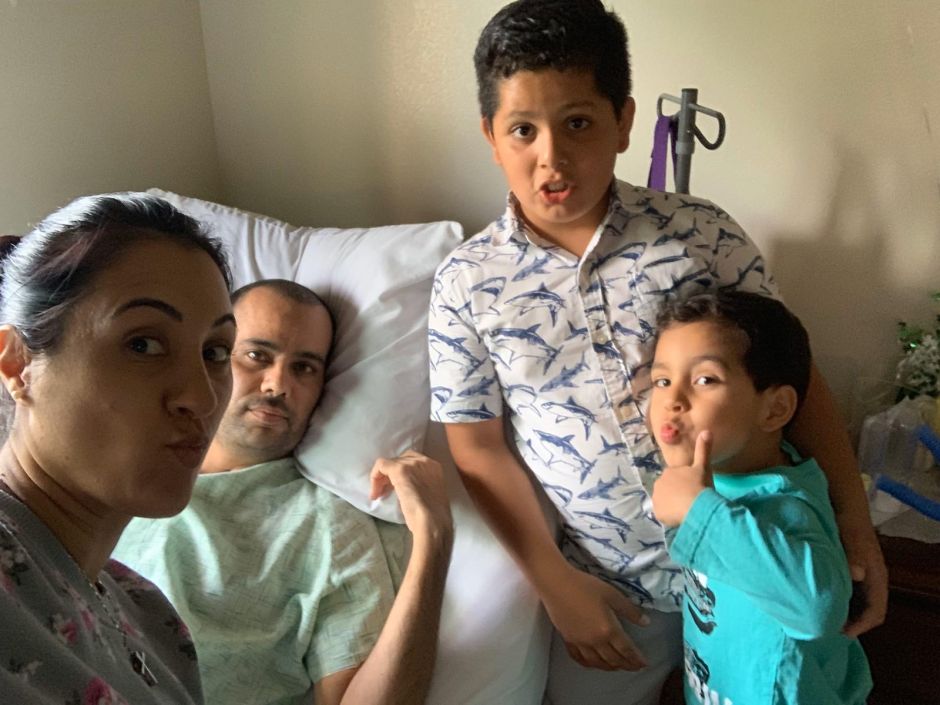
In addition, Arlene indicates that her husband was denied disability insurance, but they are appealing the decision. "I'm also going to fill out an application to see if the state of California can pay me as a caregiver in my husband's home when he takes me home."
But household income, services and gasoline are a heavy expense. “Thank God the people who visit me donate 20, 30 dollars. When my husband is at home, my sister invites me to eat her own so that Alfonso doesn't smell food, and she doesn't want anything. My family helps me with what I can; and sometimes they give me money for gas, ”says the wife.
Some community members have also responded with donations to the GoFundme account they opened to help.
A 2018 Kaiser Foundation report showed that, although the Accessible Care Act (ACA) also known as Obamacare has extended Medicaid coverage to many low-income people and subsidies to those below 400% of the level of Poverty, 37% of Hispanic adults who are not elderly, do not have health insurance.
The Census Bureau reported in 2018 that 17.8% of Hispanics do not have coverage.

